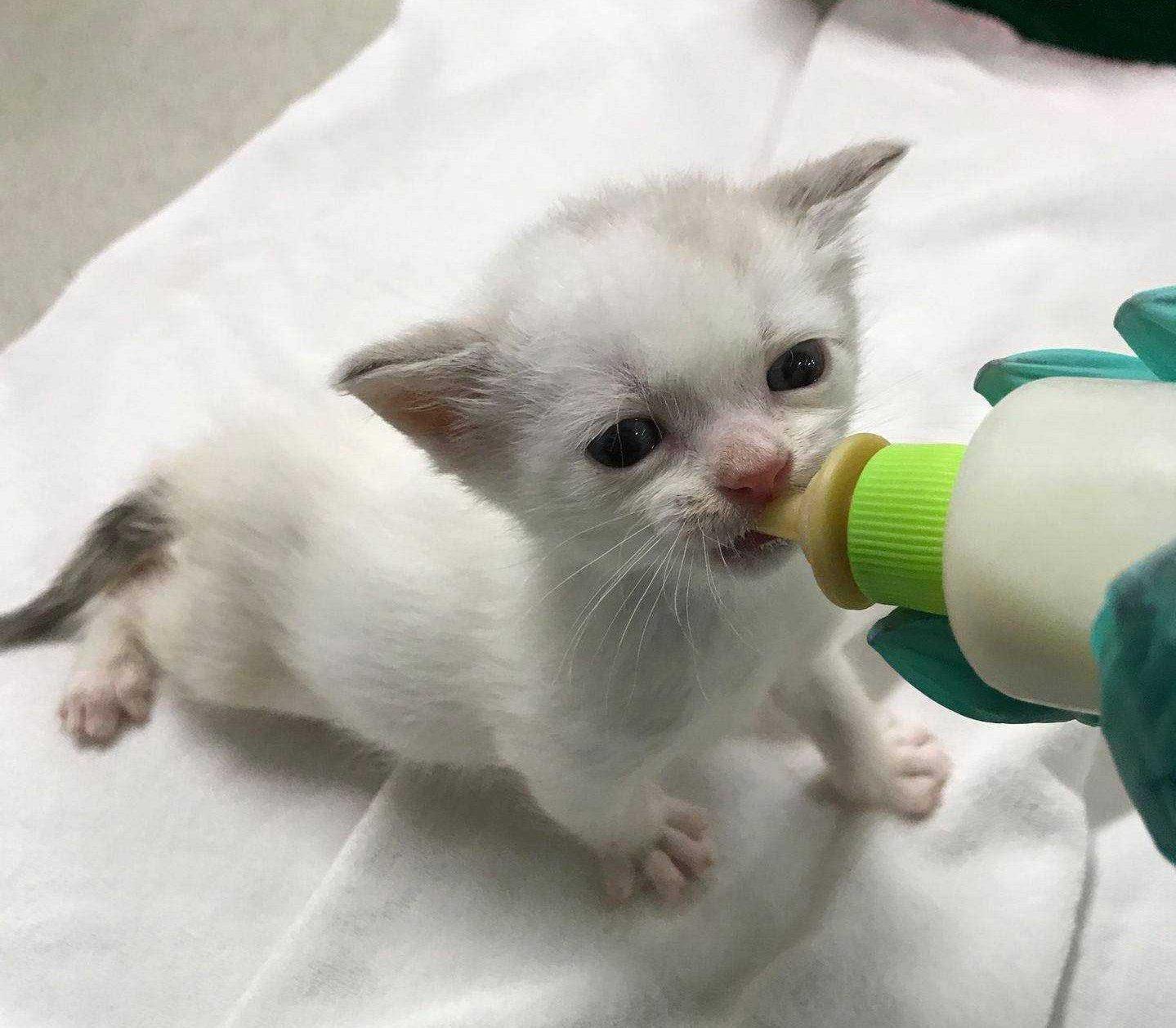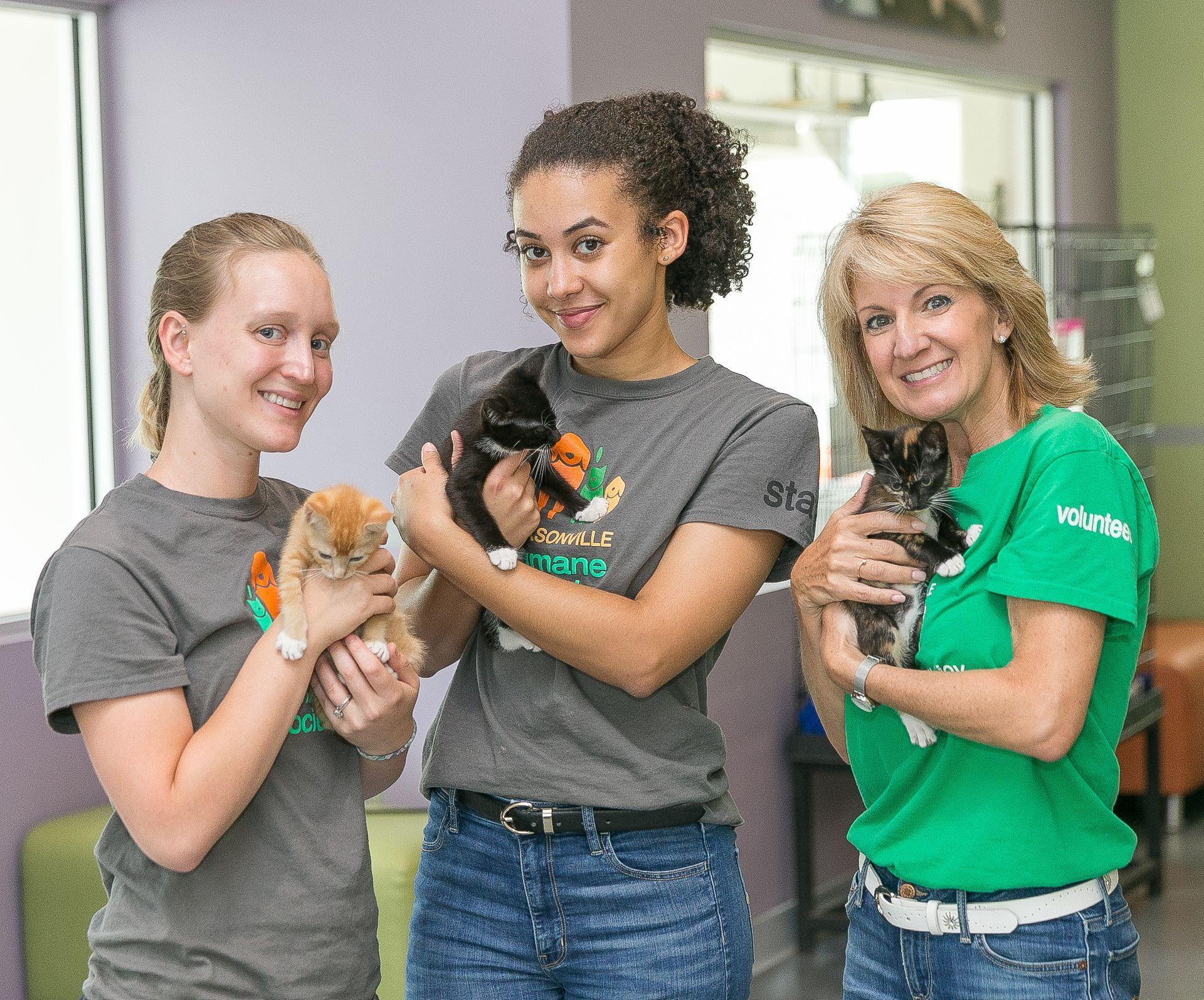By Rory Adams with Nikki Harris
Jacksonville Humane Society (JHS) increased the safety net for orphaned neonatal kittens, in anticipation of the almost 6,000 kittens the organization supported this year.
In most communities around the county, orphaned, neonatal kittens are one of the most at-risk populations of shelter pets. They require specialized care and feeding and are susceptible to disease. Often a lack of resources or programming to save their lives becomes a reason to euthanize. Around the country, these tiny, fragile babies lose their lives when they show signs of illness if enough staff aren’t available or assigned to feed them, or in many cases, as soon as they arrive at a shelter.

However at Jacksonville Humane, neonatal kittens are treated with the same individualized, urgent care offered to all animals who enter their shelter, with the goal of a live outcome. With the increasing number of kittens brought to the shelter each year, JHS decided they needed to increase options for care. They were already operating a kitten program that provided care for 3,700 kittens in 2019.
Being that neonatal kittens are unvaccinated and without their mother, keeping them out of the shelter is always the preferable option, so they are at less risk of getting sick. Jacksonville Humane’s ‘found to foster’ program keeps kittens out of the shelter and provides coaching, support, and foster supplies to the good samaritans who find them.
“Finders of underage kittens are often unsure of what to do, so they come to us,” Chief Operation Officer, Nikki Harris said.
“We know the public wants to do the right thing for the kittens, and we explain the shelter environment is not the best place for underage kittens. We ask them to keep the kittens in their homes until they are old enough and then adopt them.” Chief Operation Officer, Nikki Harris
Historically this program operated with the finders paying for vaccines and formula and taking on any medical costs associated with spaying and neutering pets. In 2019 a total of 1,180 neonatal kittens stayed with the people who found them until adoption.
Previously, when people were worried about the costs associated with care, the only option was to bring them to the shelter. Still, with the increased number of kittens coming to the shelter each year, JHS needed a new solution. That’s when Executive Director, Denise Diesler, presented an idea at a staff meeting. “What if we reach out to private practice veterinarians for help with the sick and injured orphaned neonates?” Chief Operating Officer Nikki Harris stepped up and took the lead on this new program -- ‘Kitten Krusaders.’

Staff and board members reached out to their personal veterinarians to help with the program. Within just two weeks, JHS had veterinary clinics willing to partner. By the end of the season, veterinarians were reaching out to them to help after seeing the success of the program on social media. This program helped to keep an additional 150 kittens out of the shelter-- for free!
“The primary goal of the program is to assist the good samaritans who find kittens and want to continue to help but have expressed concerns with veterinary medical costs,” Chief Operating Officer, Nikki Harris said. "A second goal is to keep kittens out of the shelter, as our resources to assist incoming kittens have reached capacity. Third, we want to build partnerships with our community veterinarians. This is a great way for them to become involved in helping to solve a community issue.”
We talked to Jacksonville Humane Society to get details on how this program works, and this is what they told us:
What is the Kitten Krusaders program?
Kitten Krusaders is a collaborative program between the Jacksonville Humane Society, veterinarians throughout the community and good samaritans that work together to reduce the number of kittens entering the shelter system.
Kittens have weakened immune systems and are at risk for exposure to potentially life-threatening disease in a shelter setting. A shelter is not the best place for these little ones! Good samaritans in need of help caring for underage kittens will be referred to a participating veterinarian by the Jacksonville Humane Society. Referral to a particular veterinary office will be based on office proximity and the type of treatment required.
What services are provided through the Kitten Krusader program?
Referral vouchers will cover the cost of basic veterinary care to include:
-> Services provided by participating veterinarians are offered by appointment only. Walk-in medical care is not available through the Kitten Krusader program.
-> The above services will be provided to eligible kittens at no cost up until 8 weeks of age or 2lbs, which is the point kittens are considered “adoption ready” and able to be rehomed.
My kittens are ready to be adopted! Now what?
-> The shelter can be a very stressful place for a pet! Caretakers are encouraged to find an adoptive home for the kittens in their care outside of the shelter system whenever possible. Attached, please find “Tips for Re-Homing Your Pet”.
-> If you are unsuccessful in finding an adoptive home for the kitten(s) in your care, or have any other questions, please email [email protected]. Please reference “Kitten Krusaders” in the subject line of the email.
How much staff time did it take to create and operate the program?
While five staff members were involved in the program development and operation, the hours required were minimal by design. The whole point was to use outside resources to save more lives!
How much did this program cost?
Close to nothing, only the minimal printing and supply costs.
What main problems did the program solve for?
The program worked to solve two problems: a national shelter DVM shortage and an ongoing increase in underage kitten intake at the Jacksonville Humane Society.
What surprised you and your staff the most about this program?
Nikki said she “was pleasantly surprised when we started getting participating DVM’s. The staff was excited to be able to offer the community more resources.”
Want to steal this idea to implement in your community? Here are several resources JHS has graciously allowed us to share with you! Download the Jacksonville Kitten Krusader Veterinary Partner Toolkit to find:
Are you eager to learn about decreasing the deaths of the neonatal kittens in your community? Apply to come to our upcoming neonatal apprenticeships.